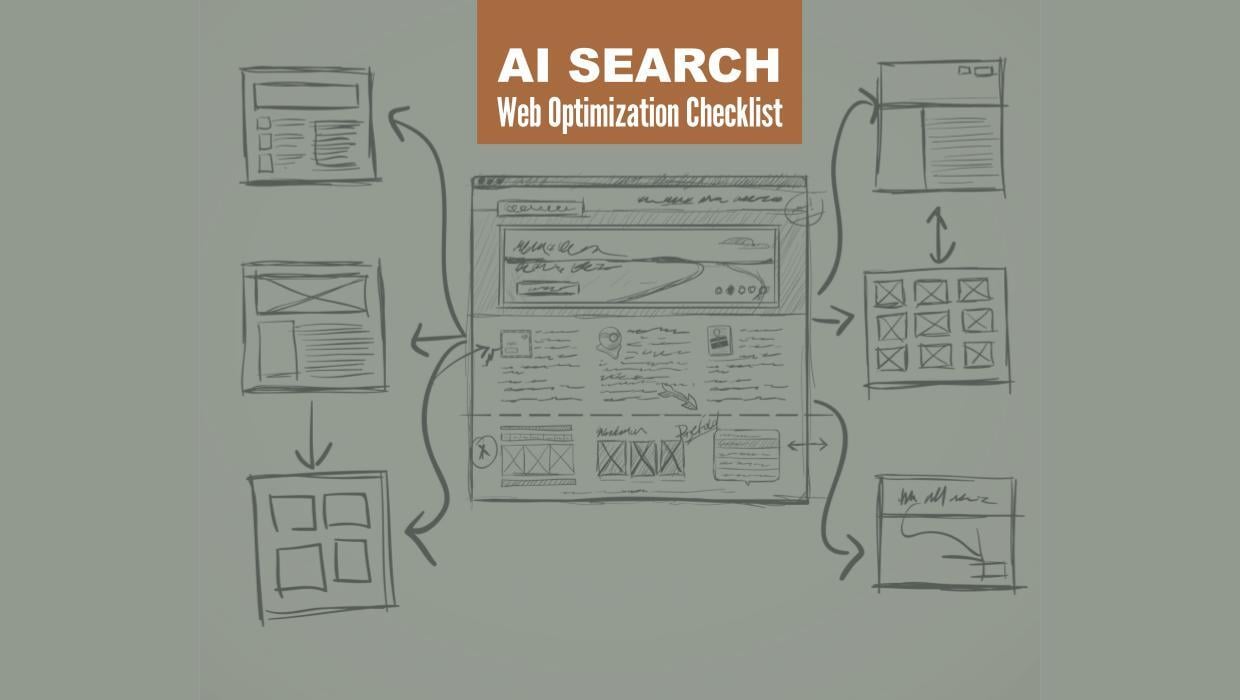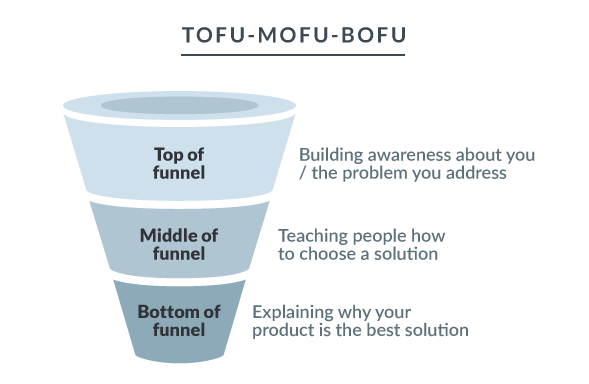How to Create ToFu, MoFu, and BoFu Content
Written by
Visitors come to your company’s website at various stages of their buying process. Whether they’re a product development engineer who’s just starting to learn about how to solve a defect in their design, or they’re looking for specific information that will help them decide on a new manufacturer to work with, different visitors need different levels of information. It’s up to you to offer relevant content that caters to their needs, answers their questions, and leads them down the sales funnel. Of course, the ultimate goal is to drive action that’s profitable for you.
When you create a content strategy for your inbound marketing plan, there are three levels of content that relate to the lead’s buying journey: top-of-the-funnel (ToFu), middle-of-the-funnel (MoFu), and bottom-of-the-funnel (BoFu). Here’s a quick look:
The brief video above shows a simplified example of how one manufacturer takes the lead through all three stages using content. Watch it now and then keep reading for a deeper explanation.
Top-of-the-Funnel (ToFu)
The top of the sales funnel is filled with prospects who don’t know a whole lot about a particular subject, but they want to gather basic information and build their knowledge base. They certainly aren’t ready to make a purchase and probably don’t have a final option in mind yet. They’re just trying to get started learning about a problem or situation they’re facing.
What kind of content are they looking for? Probably the best, and most common, type of ToFu content is blog articles, but these prospects could also be interested in short tip sheets or eBooks. Remember, since they’re just starting to learn about a particular subject, they aren’t yet looking for long, thorough content. They’re likely going online and using search engines, so an introductory blog is a great way to get them drawn into the first step of the sales funnel. Think of ToFu as the first step in building a relationship with a prospect.
Middle-of-the-Funnel (MoFu)
Once basic information is gathered on a particular subject, the lead moves into the middle of the sales funnel, where specific information is desired: answers to questions, solutions to problems, etc. The key is to provide content that continues to educate and be helpful.
What kind of content is this? While ToFu content might list the Top 5 options available to improve a process, for example, MoFu content picks one of those options and explains it in more detail. Case studies, white papers, eBooks, webinars, podcasts, and video tutorials are all common types of MoFu content.
Bottom-of-the-Funnel (BoFu)
Information is great. But eventually, a prospect needs an actual solution. In the bottom of the funnel, prospects are nearly ready to make a purchase decision. The lead just needs some convincing of why your option is the best.
So, let’s talk types of BoFu content. Ironically, at this stage, the drive to action may not even be content at all! Your leads may have all the information they need, they’re just looking for something that separates one option from the rest. This is where free consultations, free trials and other time-sensitive offers create urgency and help put your company in the running for the buyer’s final decision.
Now you can see how ToFu, MoFu, and BoFu content takes customer awareness and converts it into action. For more on details of lead nurturing strategy, including automated distribution of your content, check out one of our most popular resource articles: Serving Up the Right Content for Lead Nurturing, a quick 3-minute read.
Want to learn how to create ToFu, MoFu, and BoFu content? Download our content creation guide below.
This post was originally published September 2017 and has been updated for currentness and comprehensiveness.
Subscribe To Our Blog
Information. Insights. Ideas. Get notified every time a new Weidert Group blog article is published – subscribe now!
You May Also Like...

Search Engine Optimization
Optimize Your Industrial Website for AI Search

Marketing Technology
Why Unified Data Efforts Fail (and How Manufacturers Can Fix It)

Search Engine Optimization
How Falcon Rebuilt Industrial AI Search Visibility in 2025
Accelerate Your Growth with
Weidert Group
If you’re ready to explore a partnership, request a personalized consultation with our team.


